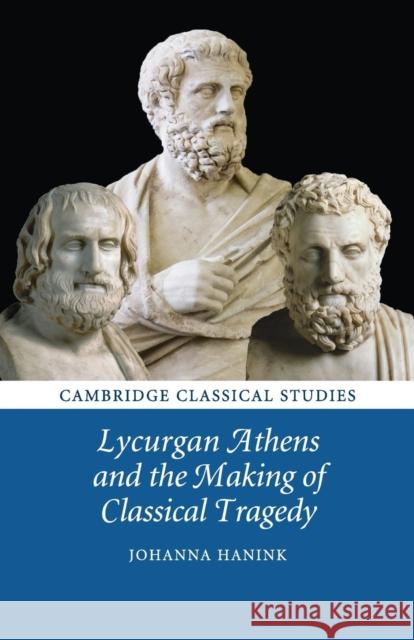Lycurgan Athens and the Making of Classical Tragedy » książka
topmenu
Lycurgan Athens and the Making of Classical Tragedy
ISBN-13: 9781107697508 / Angielski / Miękka / 2017 / 296 str.
Lycurgan Athens and the Making of Classical Tragedy
ISBN-13: 9781107697508 / Angielski / Miękka / 2017 / 296 str.
cena 154,78
(netto: 147,41 VAT: 5%)
Najniższa cena z 30 dni: 125,88
(netto: 147,41 VAT: 5%)
Najniższa cena z 30 dni: 125,88
Termin realizacji zamówienia:
ok. 22 dni roboczych.
ok. 22 dni roboczych.
Darmowa dostawa!
The first account of how Athens invented the notion of 'classical' tragedy during the later fourth century BC.











